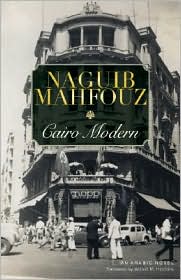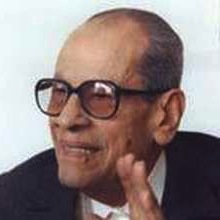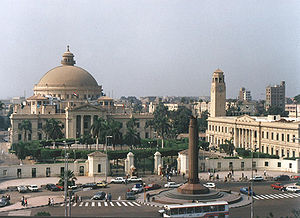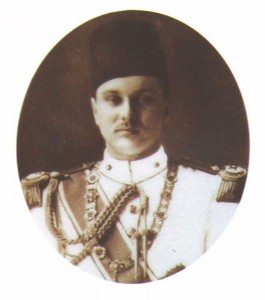Note: Naguib Mahfouz was WINNER of the Nobel Prize for Literature in 1988.
“Forget your qualifications. Don’t waste money on applying for a job. The question boils down to one thing: Do you have someone who will intercede for you? Are you related to someone in a position of power? Can you become engaged to the daughter of someone in the government?”
Set in th e 1940s, during the reign of King Farouk, Cairo Modern is, by turns, ironic, satirical, farcical, and, ultimately, cynical, as the author creates a morality tale which takes place in a country in which life’s most basic guiding principles are still undetermined. World War II has kept the British in Egypt as a foreign power, a weak Egyptian monarchy is under siege by reformers, and the army is growing. The plight of the poor is an urgent national problem. As the novel opens, four Cairo college students, all due to graduate that year, are arguing moral principles, one planning to live his life according to “the principles that God Almighty has decreed,” while others argue in favor of science as the new religion, materialism, social liberation, and even love as guiding principles. None of the students have any respect for their government, which they see as “rich folks and major families.” As one points out, “A representative who spends hundreds of pounds to get elected cannot represent impoverished people.”
e 1940s, during the reign of King Farouk, Cairo Modern is, by turns, ironic, satirical, farcical, and, ultimately, cynical, as the author creates a morality tale which takes place in a country in which life’s most basic guiding principles are still undetermined. World War II has kept the British in Egypt as a foreign power, a weak Egyptian monarchy is under siege by reformers, and the army is growing. The plight of the poor is an urgent national problem. As the novel opens, four Cairo college students, all due to graduate that year, are arguing moral principles, one planning to live his life according to “the principles that God Almighty has decreed,” while others argue in favor of science as the new religion, materialism, social liberation, and even love as guiding principles. None of the students have any respect for their government, which they see as “rich folks and major families.” As one points out, “A representative who spends hundreds of pounds to get elected cannot represent impoverished people.”

Among the students, Mahgub Abd al-Da’im is the poorest, living on a pittance, which is all his father and mother can provide him. His father’s sudden stroke, however, reduces Mahgub’s three pounds a month to only one pound, and he must literally starve himself in order to finish the school year, becoming more and emaciated as time passes. His father, unable to work, has only enough money to survive for one month after Mahgub graduates on May, so finding a job is truly a matter of the whole family’s survival for Mahgub. When Mahgub contacts a former neighbor, Salim Al-Ikhshidi, for help, Al-Ikhshidi lays out the facts of life regarding government jobs like his own—certain people will help him in exchange for a flat fee or a portion of his salary over several years—unless he can find a wife among the daughters of ministers, an impossibility considering Mahgub’s poverty.
Before long, however, Al-Ikhshidi, in consultation with higher-ups, has devised a plan for Mahgub, who is in no position to be selective. If Mahgub will agree to marry the lover of a high-ranked government official and become part of a ménage a trois, all his expenses will be paid and a job will be guaranteed in the ministry where Al-Ikhshidi himself works.
 The marriage of Mahgub and Ihsan is filled with the expected complications as Mahgub tries to hide his poverty-stricken past and his betrayal of a college friend, at the same time that he is rising in the government, associating with wealthy and influential friends, and becoming arrogant, all sources of great humor and satire by Mahfouz. Elegant society parties attended by people who “surpassed [Mahgub] in his own cynical principles” reveal Mahfouz’s opinion of this level of society.
The marriage of Mahgub and Ihsan is filled with the expected complications as Mahgub tries to hide his poverty-stricken past and his betrayal of a college friend, at the same time that he is rising in the government, associating with wealthy and influential friends, and becoming arrogant, all sources of great humor and satire by Mahfouz. Elegant society parties attended by people who “surpassed [Mahgub] in his own cynical principles” reveal Mahfouz’s opinion of this level of society.
The final scenes are worthy of the grandest of farces, and it is easy to imagine this as a period film, with the complications turning Mahgub’s life into a disaster. The Egyptian setting, while important, ultimately becomes less important here than the universal themes and attitudes which the author is satirizing—the naivete of college students, the lure of wealth, the arrogance of power, the pretentions of the newly affluent, the willingness to sacrifice principle for expediency, and, ultimately, the ability of “the clique of most powerful criminals to destroy the weaker ones.” As Mahgub’s friends gather to discuss the latest governmental scandal at the end of the novel, they hark back to their arguments at the novel’s opening, wondering about the role of religion, the definition of evil, the mores of their society, and all the interactions among these. Life is busy for these young men, however, and tomorrow is another day.
universal themes and attitudes which the author is satirizing—the naivete of college students, the lure of wealth, the arrogance of power, the pretentions of the newly affluent, the willingness to sacrifice principle for expediency, and, ultimately, the ability of “the clique of most powerful criminals to destroy the weaker ones.” As Mahgub’s friends gather to discuss the latest governmental scandal at the end of the novel, they hark back to their arguments at the novel’s opening, wondering about the role of religion, the definition of evil, the mores of their society, and all the interactions among these. Life is busy for these young men, however, and tomorrow is another day.
ALSO: THE DAY THE LEADER WAS KILLED, KARNAK CAFE, THE MIRAGE,
Notes: Also reviewed here are MANY other novels by Mahfouz. See Authors tab at the top of the Home page for links.
The author’s photo appears on http://news.softpedia.com
Cairo University is depicted on http://en.wikipedia.org
Ascending the throne in 1936, King Farouk was Egypt’s last king. His reign lasted until 1952. http://en.wikipedia.org
